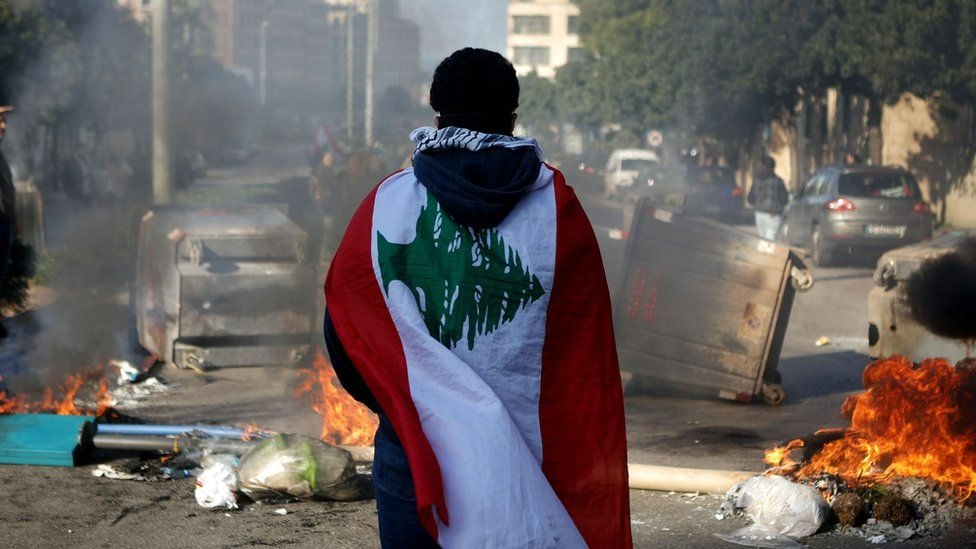Strategizing from 7 cities across the globe
Beyond the Headlines: Lebanese Society Today
Home, Lebanon… A country known for its diversity and resilience is now facing an ongoing war that is shaping its societal fabric. Commonly known, a war disrupts the population's everyday lives, but in Lebanon, it is shaping the long-term cultural, demographic, and social structures. With ongoing missile attacks, several individuals and families found themselves forced to flee their homes to relocate to safer, non-targeted areas. For years, Lebanese society has been shaped by continued displacement, an absence of governance, and rising socioeconomic tensions.
WARMIDDLE EASTSOCIOLOGY
Lynn Abo Hamzy
11/6/20245 min read


Displacement
As the "red zone" areas which are being hit continue to grow, more people are fleeing to less-targeted areas in search of protection. These people find themselves losing touch with their cultural heritage, history, and identity, as they have been forced to just leave and abandon their homes. These were their sanctuaries that were full of safety, memories, comfort, and their strong sense of identity.
Here, I can reflect on Pierre Bourdieu's notion of habitus, which stands for the behavioral patterns influenced by social structures. Habitus does not completely determine behavior, but it encourages individuals to act in ways that align with the social structures, affecting how they perceive and interact with the world (Power, 1999b). Often implying one's roots, the main habitus, that of the fundamental set of dispositions molded by one's early environment, is shown through behaviors like accent and mannerisms (Power, 1999b).
Bourdieu's theory explains how relocation disrupts cultural continuity. He believes that physical spaces shape everyday routines and traditions in society, so when families are forced to relocate, their habitus is altered, affecting their sense of identity and cultural expression (Power, 1999b). Displacement also creates a state of liminality. Liminality is a notion defined by anthropologist Victor Turner, in which people find themselves stuck between their former roles and an uncertain future because they are being alienated from their previous lives and do not know what lies ahead (Spiegel, 2022). This aligns with many in Lebanon, as they feel uncertain about their futures due to this sense of liminality.
Furthermore, displacement exacerbates an unequal distribution of cultural capital, limiting access to resources such as education. While some schools remain open in Lebanon, others have been transformed into refugee shelters. This shows how dominant groups can preserve stability simply by conforming to their cultural norms, but those who are displaced have to fight to adjust within a disturbed habitus (Power, 1999b). As they hope to gain a sense of stability and belonging in a foreign area, their sense of self becomes fragmented. It is disorienting to see them becoming caught between their old life which made sense and the new means that feel foreign.
According to Bourdieu, habitus is an ingrained way of being. It is a combination of all the life experiences that define how one interacts with the world. Habitus is not something one chooses, like a preference or a hobby, and it’s not just forced upon us by society or family. Habitus is what grows out of ongoing personal choices and societal norms. It is a set of deep-rooted instincts, like how we interpret a stranger’s glance, what food feels comforting, what values resonate with us, etc.
Think again about the countless families and individuals forced to leave their homes, torn away from the communities that gave them a shared sense of belonging and taste—the very essence of their habitus. Their displacement has shaped their lives, not only by taking away the familiar places they once knew but also by taking away their familiar ways of being and understanding life. Families that might have once gathered in the same cafés, markets, or neighborhoods are now scattered, with their lives divided.
Uncertainty and Societal Tensions
The ongoing uncertainty caused by displacement and threats to safety creates a significant psychological burden on Lebanese society. Sociologist Anthony Giddens’ concept of ontological security, or the mental stability that humans gain from predictable and consistent environments, explains why so many Lebanese people today experience increased stress and anxiety (Valente & Pertegas, 2017). According to Giddens, a stable environment is necessary for humans to feel safe and in control of their lives (Valente & Pertegas, 2017). In Lebanon, however, recurrent disruptions diminish this stability, undermining people's feeling of security and amplifying social tensions. As a result, fragments among communities form, with socioeconomic backgrounds often fighting in such stressful circumstances.
Government Absence and Community Efforts
In the absence of government support and in the face of official apathy, Lebanese communities have formed support networks to help those affected and those in need. This solidarity explains how societies in distress often self-organize to sustain social order. Today, we witness a kind of solidarity in Lebanon where mutual help initiatives are entwined with society's values. Individuals and non-governmental organizations (NGOs) have organized donation drives, distributed food, and offered shelter, demonstrating community resilience in government's absence.
Class Exploitation
While many Lebanese have shown solidarity and sympathy, some have taken advantage of the situation. Landlords have dramatically increased rents, capitalizing on the displaced population's desperation. Karl Marx's theory of class exploitation comes to mind in this context since it explains how these phenomena exacerbate social inequality. Marx argued that economic exploitation occurs when one class profits heavily at the expense of another, resulting in social and economic differences, such as those experienced by displaced people fleeing the South, Dahyi, and Beqaa areas for safer areas. The displacement crisis has allowed some to abuse the vulnerability of others, therefore strengthening social inequality and maybe even leading to increased animosity within Lebanese society.
Long Term Impacts and Final Thoughts
The effects of war are beyond what the surface level suggests. No one wins in war, and there should be alternative methods to resolve disputes without resorting to violence and attacks on civilians. Food shortages and the lack of access to necessities in the red zone areas lead to malnutrition. Moreover, those who live with constant stress and anxiety have developed emotional scars and, in certain situations, have turned to drugs as a means to cope, which have a significant negative impact on their health and well-being. The country’s economy has also long been suffering before the war, and with the recent surge in unemployment and intelligent youth fleeing the country to find stability elsewhere, “brain drain” is ever-present.
Many schools have turned into collective shelters, and many students and teachers have been displaced, which has resulted in a sharp decline in education. Additionally, some historical sites and places of worship and cultural heritage are getting destroyed, diminishing the historical and cultural identity of the communities they represent and also affecting Lebanon's diversity.
These consequences leave an enduring mark of suffering that will persist long after the war ends. This goes on to include challenges with abandonment, separation anxiety, fear of loss, withdrawal, anger, migraines, disturbed sleep patterns, loss of appetite, etc. Above all, I believe that people are losing their fundamental civil rights, their sense of security and stability, and their sense of time. They are being deprived of the spaces they need to develop, grow, and recover. While the war may spare certain areas in Lebanon, it will impact the entire population. Beyond the physical wounds and visible destruction, war leaves invisible deep emotional wounds that are silent, slow to heal, and already reshaping the Lebanese societal fabric.
References
Power, E. M. (1999b). An introduction to Pierre Bourdieu’s key theoretical concepts. Journal for the Study of Food and Society, 3(1), 48–52. https://doi.org/10.2752/152897999786690753
Spiegel, M. (2022). Victor Turner and Liminality: An introduction. Uct. https://www.academia.edu/83905361/Victor_Turner_and_Liminality_An_introduction
Valente, R., & Pertegas, S. V. (2017). Ontological insecurity and subjective feelings of unsafety: Analysing socially constructed fears in Italy. Social Science Research, 71, 160–170. https://doi.org/10.1016/j.ssresearch.2017.11.007
